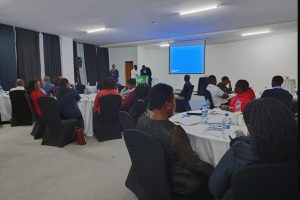The life expectancy in Kenya in 2019 was 69.0 for females and 64.7 for males. This has been an increment from the year 2016 when the life expectancy was 62.6 and 59.0 respectively.
The leading cause of mortality in Kenya in the year 2016 included diarrhoea diseases 18.5%, HIV/AIDs 15.56%, lower respiratory infections 8.62%, tuberculosis 3.69%, ischemic heart disease 3.99%, road injuries 1.47%, interpersonal violence 1.36%.
Minet is a trusted pan-African advisor that meets the uncertainties of tomorrow by delivering risk and human capital solutions today.
As the largest Aon Global Network Correspondent, Minet has access to a network of over 50,000 colleagues in 120 countries as well as proprietary data, research and analytics which enable us to manage and secure the risks of tomorrow and provide clients with an unrivalled advantage.
More than 1500 Nairobians have benefitted from the four-day Minet Kenya free medical check-up exercise.
Health services that Minet Kenya had been offering included free physician consultation, eye and dental check-ups, random blood sugar tests, blood pressure, body fat and Body Mass Index (BMI) screening, electrocardiogram (ECG) test for patients with hypertension, and nutritional coaching.
Speaking on the initiative, Minet Kenya’s Chief Executive Officer Sammy Muthui reiterated that the company is committed to promoting wellness and creating awareness of rising cases of non-communicable diseases and thus, the importance of regular medical check-ups in their prevention.
“While most of the non-communicable diseases like Diabetes, Cancer, and Hypertension are silent, insidious, and frequently present with no symptoms until advanced stages, many people are not aware of their current health status and exposure. Regular health check-ups can detect potentially life-threatening health conditions early increases the chance of good treatment outcomes and arrest the emergence of complications”, says Mr. Muthui.
According to a World Health Organization study from 2021, 41 million people die each year as a result of non-communicable illnesses, accounting for 71% of all fatalities.
Furthermore, over 15 million individuals die between the ages of 30 and 69, with low- and middle-income nations accounting for 88 percent of these “premature” fatalities.
According to Ministry of Health data, noncommunicable illnesses account for 39% of all fatalities in Kenya.
“As stakeholders in the healthcare sector, we are determined to play a role towards changing the public attitude in Kenya from the curative orientation to that of prevention in controlling NCDs in Kenya” he adds.
The wellness week comes at a tie when Kenyans continue to grapple with non-communicable diseases such as diabetes, hypertension, and cancer that are increasingly affecting many and burdening the country’s healthcare system.
According to the Ministry of Health, Non-Communicable Disease-NCD-Strategic-Plan-2021-2025, NCDs account for approximately 39 percent of deaths in the country. This number is projected to increase by 55 percent by 2010.
Additionally, NCDs have been shown to decrease household income by 28.6 percent in Kenya thus subjecting families to catastrophic expenditure spiralling them into a vicious cycle of poverty.


















